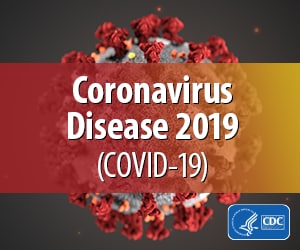CDC/ATSDR Tribal Advisory Committee
The Centers for Disease Control and Prevention/Agency for Toxic Substances and Disease Registry (CDC/ATSDR) Tribal Advisory Committee (TAC) is currently recruiting to fill a delegate vacancy in the Nashville and Portland areas, and 9 vacant alternate positions for various areas, please review the current TAC Roster [PDF – 253 KB] for additional updates. CDC/ATSDR is currently recruiting for these TAC vacancies through Friday, March 15, 2024. For any questions or more information, email tribalsupport@cdc.gov.
The Tribal Advisory Committee (TAC) advises CDC/ATSDR on policy issues and broad strategies that may significantly affect American Indian/Alaska Native communities. The TAC will assist CDC/ATSDR in fulfilling its mission to promote health and quality of life by preventing and controlling disease, injury, and disability through established and ongoing relationships and advice.
The TAC consists of 17 voluntary representatives: 1 delegate (and 1 alternate) from a federally recognized tribe geographically located in each of the 12 Indian Health Service Areas, and 1 delegate (and 1 alternate) from 5 National At-Large Tribal Member (NALM) positions.
Each TAC delegate will have only one (1) designated TAC alternate, who may represent the TAC delegate in TAC meetings and other TAC activities in the event the TAC delegate is unable to attend. A designated TAC alternate must be qualified to represent the same Area as the TAC delegate but does not have to be from the same Tribe as the TAC delegate.
TAC Delegate
Each TAC Delegate should be an elected officer of a Tribal government or designated representative acting in his or her official capacity. All NALM members must either be elected Tribal officials, acting in their capacity as elected officials of their Tribe, or be designated by an elected Tribal official, in that official’s elected capacity, with authority to act on behalf of the Tribal official. The delegate must be qualified to represent the views of their Tribal government and others in the respective area from which he or she was nominated.
Employees of an elected officer of a Tribal government or national associations who have authority to act on that officer’s behalf, and who are designated to do so in writing (i.e., a designated representative), may be nominated as a TAC delegate and if chosen participate on the TAC in lieu of the elected officer. A designated representative should have authority to speak for and bind the Tribal government he or she is representing in the same manner that the Tribal official would.
If a TAC Delegate cannot attend a TAC meeting, the delegate will notify, by email, the Director of the Office of Tribal Affairs and Strategic Alliances (OTASA) within CDC’s National Center for State, Tribal, Local, and Territorial Public Health Infrastructure and Workforce. OTASA will then notify the alternate, prior to the meeting, to participate on the TAC delegate’s behalf.
TAC Alternate
The TAC Alternate should be an elected officer of a Tribal government or designated representative, acting in his or her official capacity. An area alternate must be qualified to represent the views of their Tribal government and others in the respective area from which he or she was nominated. In the event the alternate will be participating on behalf of the delegate, the alternate will be given full voting rights. The alternate may attend all TAC meetings and activities but cannot participate actively unless the seat is ceded by the primary TAC Delegate.
When there is a permanent vacancy in the corresponding delegate’s position (due to removal or for other reasons), the CDC Designated Federal Official (DFO) will notify the alternate and request that the alternate perform the duties of the TAC delegate to the extent the alternate would be eligible to serve on the TAC (e.g., an alternate could step up to serve as TAC delegate, but if isn’t a tribal elected official cannot serve as TAC Chair or Co-Chair). The designated alternate will serve the remainder of the unexpired term of the original delegate and if nominated again may serve successive, consecutive terms.
We acknowledge the Muscogee (Creek) and Cherokee Nations whose Indigenous lands house the CDC and ATSDR Atlanta campuses. We also acknowledge the ancestral lands of the Nacotchtank (Anacostan) and Piscataway Indian Nation whose Indigenous lands house our Washington, DC CDC offices.
TAC Information
- TAC Fact Sheet [PDF – 264 KB]
- Current TAC Roster [PDF – 211 KB]
- TAC Charter [PDF – 199 KB]
- Federal Advisory Committee Act (FACA) Frequently Asked Question [PDF – 366 KB]
Document provided by the Department of Health and Human Services
Designated Federal Official
Leslie Ann Dauphin, PhD
Director, National Center for State, Tribal, Local, and Territorial Public Health Infrastructure and Workforce, CDC
Executive Secretary
Captain (CAPT) Damian Killsback, PharmD, MPH
Director, Office of Tribal Affairs and Strategic Alliances
National Center for State, Tribal, Local, and Territorial Public Health Infrastructure and Workforce, CDC
Training for TAC Members
- Public Health Training for Tribal Leaders: CDC worked with the National Indian Health Board to create this training module to teach TAC members and tribal leaders about public health topics and support consultation on public health
